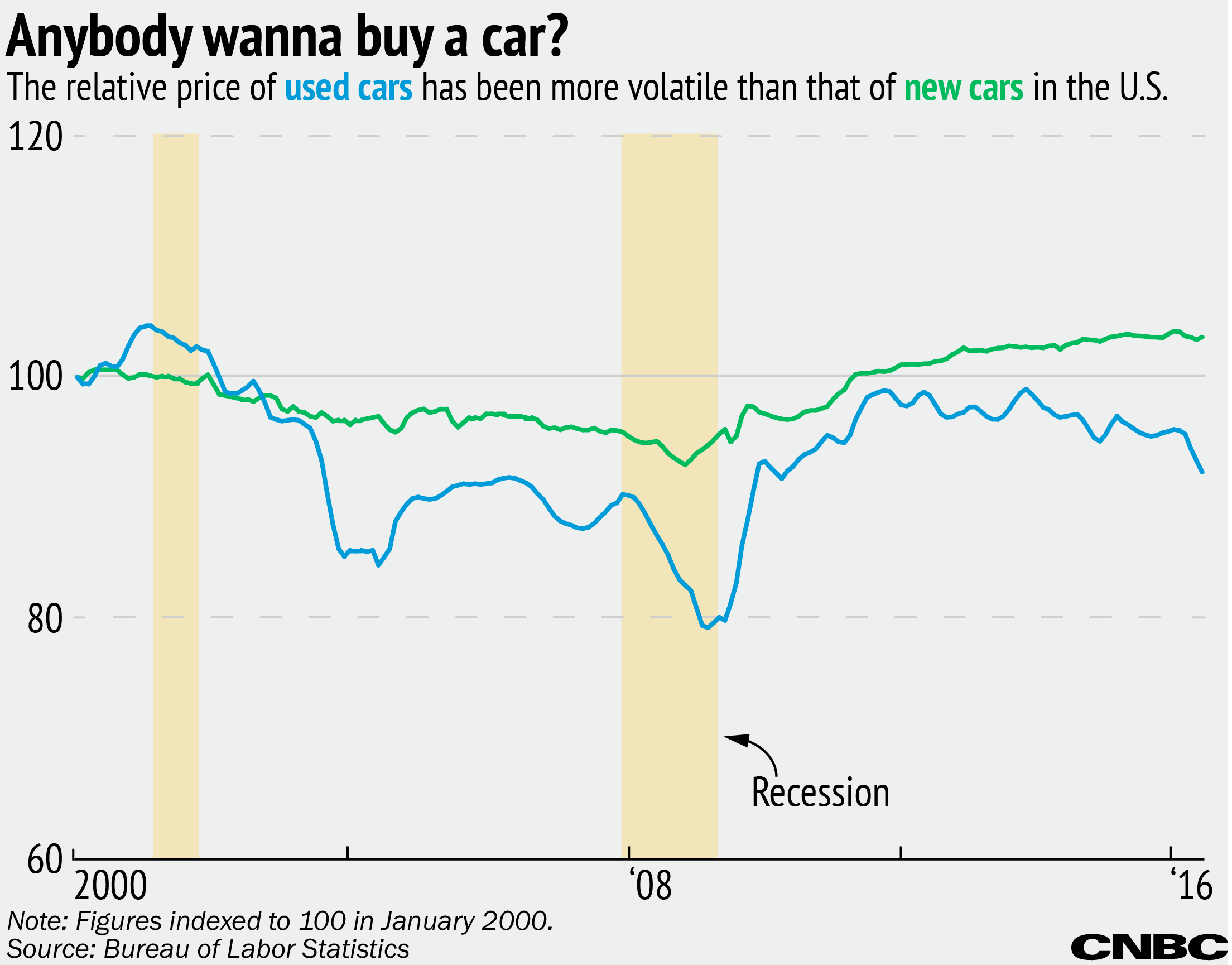How much does a Honda Accord cost? The answer might depend on where you live.
The price of a used car can swing more than 20 percentage points depending on what metro area you're shopping in, according to a study from an online used-car marketplace. The findings show trends in regional economics and potential opportunities for well-planned "carbitrage."
That 2013 Accord you were shopping for costs an average of $15,918 in Miami, the nation's cheapest place to buy a used car, according to the data. In Fresno California, the equivalent car would cost $18,297.
That's according to data from CarGurus.com, provided exclusively to CNBC. CarGurus, a Massachusetts-based online marketplace for used cars, crunched the numbers on more than five million used cars listed for sale in the 98 largest metro areas in the country.




